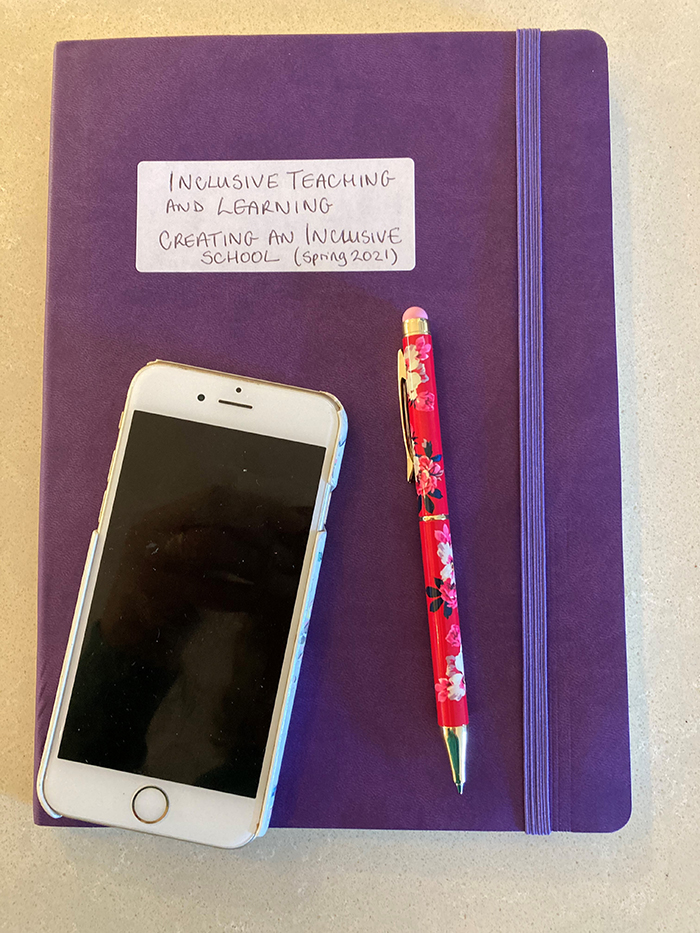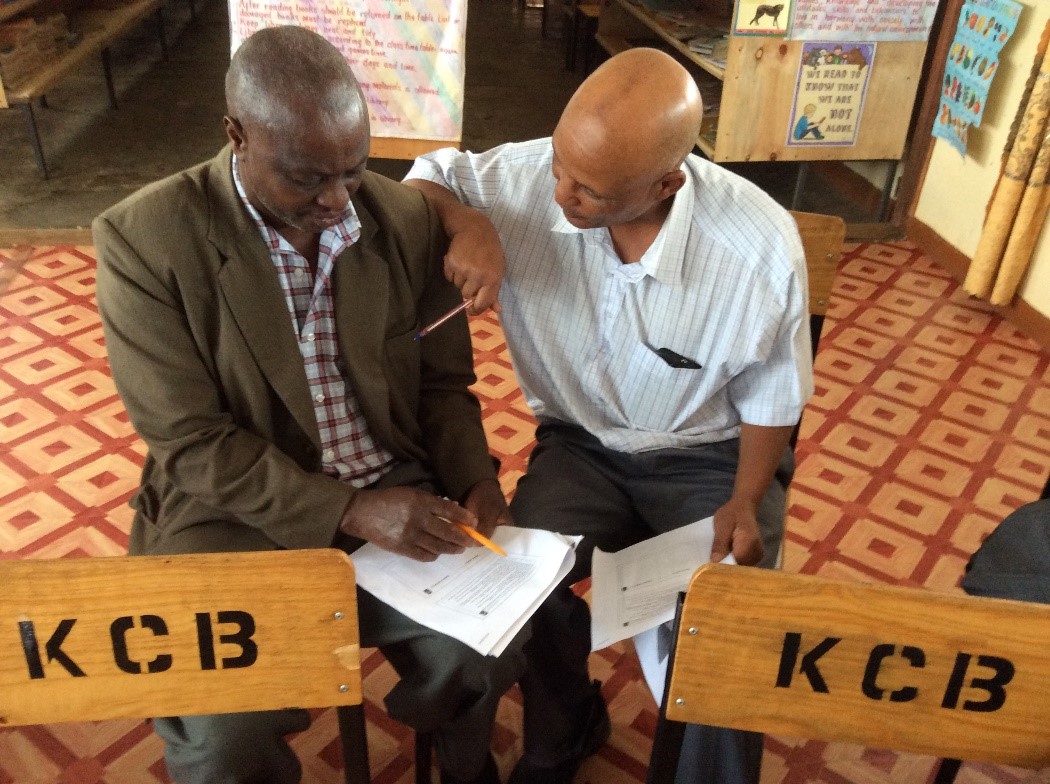Welcome to Inclusive Teaching and Learning
| Site: | OpenLearn Create |
| Course: | Inclusive Teaching and Learning |
| Book: | Welcome to Inclusive Teaching and Learning |
| Printed by: | Guest user |
| Date: | Thursday, 12 February 2026, 6:28 AM |
1. Introduction

Welcome to the course Inclusive learning and teaching. Over the next few weeks you will be introduced to the principles and practicalities of inclusive learning and teaching. You can study on your own or with a group of colleagues and are encouraged to practise new approaches in your classroom or in your role as an educator, in a structured and supported way.
This course is for you if you are an educator: a teacher, head teacher, teacher educator, education officer whose role involves supporting teachers, student teacher or school volunteer – or if you just have an interest in inclusive teaching and learning.
We hope that this course will open up possibilities for teaching and give you the confidence to experiment with new approaches. The ideas and tools that it provides will enable you to become more expert in the field of inclusive teaching and learning.
If you have not already done the pre-course survey, please complete it now. This will to help us understand who is taking part in this course, your motivations and your expectations. Thank you for completing this.
2. What you will learn on this course

In this course you will explore the Wave Model for Inclusive Education (Sarton and Smith, 2019), and Learner-centred Education as a policy response to calls for more inclusive classrooms. You will consider who is likely to be excluded from learning; why learner-centred education is an appropriate policy response; what inclusive teaching looks like; and how you (as an individual) you can make inclusive learning and teaching a reality in your role as an educator.
You will have the opportunity to build a toolkit of knowledge, skills and resources that will support in in developing as an inclusive practitioner.
3. How you will learn on this course
During the course you will be introduced to a number of tools and resources that you can download and use in your work. There will also be optional readings and links that you can use to deepen your knowledge and understanding of a particular topic.
Inclusive Teaching and Learning is ‘learner-centred’ and inclusive in its approach (Schweisfurth, 2013). Therefore, the course:
- builds on your existing knowledge and challenging you to learn more
- provides activities aimed at motivating you and your teacher colleagues
- takes account of the different starting points you might have
- emphasises the importance of dialogue to support thinking and learning
- draws on examples relevant to your everyday life and to your role as an educator
- promotes the learning of a range of skills, including critical thinking, problem-solving and creativity
- makes space for personal reflection and responses
- encourages you to work together and discuss the activities.
It draws on examples and case studies in order to illustrate principles of practice. You are encouraged to analyse these examples and identify ways in which they apply to your context and your practice.
4. Your study notebook

You are asked to keep a study notebook for this course in which you can make notes on:
- ideas that may come to you when you are either studying or in the workplace, or at any other time
- your responses to particular activities
- notes about articles that you read as you go along
- notes about discussions you have had with others
- questions that occur to you while you are studying
- reflections on what you think or feel about your learning.
Your study notebook is personal to you and it should be useful to you. You may want to share parts of it with a friend or colleague. There are no rules for keeping a study notebook: some days you may write a great deal, and at other times only a little. However, you are advised to write notes in such a way that you can understand them later. This is because we see this course as a starting point for your professional development.
There are lots of practical ideas for you to try with your classes, and we hope you will keep practising the techniques that you learn. In this way, you will have a reference to the things you have learnt, even when you are away from a computer.
You can keep your notebook in a format that appeals to you and is easy for you to maintain – it could be an ordinary paper notebook or on a desktop or mobile device.
5. Working with others

This course can be studied by individuals working alone. However, it is a practice-focused course and many of the activities will suggest that you talk to a colleague or a group of colleagues about an idea or an issue. Course forums provide an opportunity to share ideas with other participants. A team of facilitators will be engaging with you on the forums for the duration of the course.
Learning is a social process; by presenting your ideas to others and listening to them in return, your learning will be enhanced and enriched. In fact, a very good way to maximise the opportunities of this course would be for a group of you in the same institution to work together on the tasks and activities. If that is not possible, then use the course forums to interact with each other. Forums work best when people engage with other posts, as well as presenting their own ideas, ask questions and respond to those of others.
Activity: How will you study?Allow approximately 20 minutes for this activity On your own or with a group of colleagues, plan how you are going to work on this course.
Being proactive in this way means that you are more likely to meet your study goals. |
6. Using the course forums
The course forums are an opportunity to engage with others who are studying the course at the same time.
Some of the activities will invite you to make a post on the course forum. There is a course forum for each week of the course. You will find the link to it in the main page and in the links on the left-hand side of the screen. When you want to make a post, click on the ‘Week 1 Course Forum’, ‘Week 2 Course Forum etc.
If you are responding to an activity, look for the discussion thread which has the number and title of the activity that you are doing. Click on that. You will be able to read the other contributions and post a comment.
To post a comment, either ‘reply’ to the comment at the top of the page, or ‘reply’ to one of the other comments. You can of course do both.
If you would like to comment on something different, or share an experience, then go back to the ‘Week 1 Course Forum’ by clicking on the sequence at the top of the page, or on the ‘back arrow’ on the top left of your browser.
Activity: Introduce yourselfAllow approximately 15 minutes for this activity In the ‘Welcome course forum’ introduce yourself to the other participants by telling us
Respond to at least one other post. |
7. Course Badge
The course is divided into four weeks. We anticipate that each week involves four to six hours of study. In order to achieve the ‘badge’ for the course, you will need to:
- visit each page of the course
- complete the quizzes at the end of Weeks 1, 2 and 4
- write a short blog post at the end of Week 3.
In order to achieve the badge you will need to be connected to the internet. However, you can download the content onto a laptop, tablet or smartphone and study offline if your internet access is unreliable.
8. Who created this course?
This course was created by the Open University (OU), working in partnership with the Commonwealth of Learning. Case studies and ideas were also contributed by The Kenyan Institute of Special Education (KISE), colleagues at Kenyatta University, colleagues from Gulu University, Uganda, and COL partners in Jamaica.
Course facilitators are from KISE and COL’s partners in Jamaica, supported by OU academics.
The course draws heavily on knowledge and understanding gained from the TESSA network. TESSA is a network of Teacher Educators, at the heart of which is a bank of Open Educational Resources (OER) available on the TESSA website. The OER cover the primary school curriculum and show teachers how to put theories about active learning into practice. Learning outcomes are for the teacher, meaning that the OER can support teachers and teacher educators.
The Commonwealth of Learning has a long history of supporting education through the provision of free resources. The course draws on resources available in their OER repository OAsis.
9. Assumptions we have made in writing this course
Learning to teach is demanding and takes time. Pedagogic change requires collaboration, practise and reflection, particularly when teachers are being asked to adopt practices that they have not themselves experienced. In order to write this course we have had to make a number of assumptions:
- Participants will be working in a range of different contexts and will have a range of different experiences.
- There are no ‘right answers’ to the problems of inclusive education. This course encourages participants to examine their own context and apply the ideas presented, appropriately. The course will be successful if participants ‘own’ the challenges they face and develop ways of working collaboratively to identify local solutions to those problems.
You should now go to Week 1 of the course.
References
Sarton, E and Smith, M. (2019) The challenge of inclusion for children with disabilities – experiences of implementation in Eastern and Southern Africa. Available from: https://blogs.unicef.org/blog/challenge-inclusion-children-with-disabilities/
Schweisfurth, M. (2013). Learner-centred Education in International Perspective: whose pedagogy for whose development? Abingdon: Routledge.